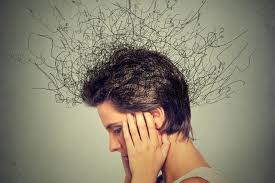Overview
Millions of people worldwide suffer with anxiety, a widespread and frequently crippling disorder that has a significant negative influence on both mental health and quality of life. Although the causes of anxiety are numerous and intricate, new research points to a possible connection between anxiety and testosterone, a hormone that is typically connected to actions and characteristics associated with men. Through this investigation, we hope to shed light on the mechanisms underlying this fascinating link between testosterone and anxiety as well as its implications for clinical practice and research in the field of mental health.
Recognizing Anxiety as a Complex Phenomenon
Excessive worry, fear, and physiological arousal in reaction to perceived dangers or stressors are characteristics of the complex phenomena known as anxiety. Anxiety can assist people navigate risky or unclear situations, which is an adaptive role; nevertheless, excessive or persistent anxiety can negatively impact functioning and quality of life. Anxiety disorders impact people of all ages and backgrounds, and they include panic disorder, social anxiety disorder (SAD), generalized anxiety disorder (GAD), and phobias. They are among the most prevalent psychiatric problems globally.
Anxiety has many different and complex causes, including environmental, genetic, neurological, and psychological elements. Anxiety disorders have been linked to the dysregulation of neurotransmitter systems, specifically gamma-aminobutyric acid (GABA), norepinephrine, and serotonin.
Furthermore, changes in neuroendocrine function, such as dysfunctions in the sympathetic nervous system (SNS) and the hypothalamic-pituitary-adrenal (HPA) axis, may play a role in the onset and maintenance of anxiety symptoms.
Historically, the significance of testosterone in anxiety has been comparatively overlooked in contrast to other neurochemical and hormonal variables. But new research indicates that testosterone may be a major modulator of anxiety management, especially when it comes to stress and social interaction.
Examining the Relationship Between Testosterone and Anxiety: New Findings
The intricate relationship between testosterone and anxiety is starting to be more understood thanks to recent research, which has identified both direct and indirect pathways via which testosterone may affect anxiety-related functions. Although research on this relationship’s exact nature is still underway, preclinical and clinical studies have led to the proposal of numerous important routes.
One theory that links testosterone to anxiety is that it interacts with the limbic system, a sophisticated network of brain regions that is involved in stress management and emotional processing. The hippocampus, prefrontal cortex, and amygdala are among the brain areas linked to anxiety that have high expression levels of testosterone receptors. Depending on variables like dosage, duration, and context, testosterone may have both anxiogenic and anxiolytic effects by modifying neuronal activity and synaptic transmission in certain brain areas.
Furthermore, testosterone may have further impacts on the control of anxiety due to its influence on neurotransmitter systems such as serotonin, dopamine, and GABA. For instance, it has been demonstrated that testosterone increases serotonergic activity in specific brain regions, which may help some people with their anxiety symptoms. On the other hand, variations in testosterone-related dopaminergic and GABAergic neurotransmission may make certain people more prone to anxiety.
Apart from its immediate impact on brain activity, testosterone can also affect anxiety by interacting with the stress response system and the HPA axis. Cortisol levels, a crucial indicator of HPA axis function, have been demonstrated to be modulated by testosterone, with higher testosterone levels linked to attenuated cortisol reactions to stress. The pathophysiology of anxiety disorders has been linked to dysregulation of the HPA axis and cortisol signaling, implying that testosterone may have an indirect impact on anxiety through its effects on stress physiology.
Future Directions and Clinical Implications
Research on the relationship between testosterone and anxiety is becoming increasingly popular, which will have a big impact on clinical practice and mental health research. Although testosterone replacement therapy (TRT) has historically been used to treat sexual dysfunction and hypogonadism, more research is necessary to determine whether TRT can also be used to reduce anxiety.
Results from clinical trials investigating the impact of testosterone replacement therapy (TRT) on anxiety symptoms have been inconsistent. While some studies have indicated benefits in anxiety after testosterone supplementation, others have found no meaningful effects or even an aggravation of anxiety symptoms. The necessity for individualized treatment strategies is highlighted by the possibility that these discrepancies are partly caused by individual variations in testosterone metabolism, receptor sensitivity, and baseline anxiety levels.
TRT may be beneficial for managing anxiety, but its possible risks and side effects—such as mood swings, libido changes, and cardiovascular issues—must be carefully weighed against it. To evaluate the safety and effectiveness of TRT in people with anxiety disorders, especially those who also have co-occurring medical or psychiatric illnesses, longitudinal studies are required.
For the treatment of anxiety in people with testosterone dysregulation, non-pharmacological methods such as cognitive-behavioral therapy (CBT), mindfulness-based stress reduction (MBSR), and lifestyle modifications may be complementary to pharmaceutical interventions. Healthcare professionals can maximize the chance of therapeutic success by customizing therapies to each patient’s specific requirements and preferences by using an integrative, multidimensional approach to anxiety treatment.
In summary
In summary, new studies on the relationship between testosterone and anxiety provide fresh perspectives on the neurological processes that underlie the control of anxiety. Testosterone may have a major modulatory effect in anxiety-related processes, while the exact nature of this interaction is still being investigated. This has consequences for clinical practice and research on mental health. Researchers and clinicians can lead the way towards more individualized and successful interventions for people with anxiety disorders, thereby enhancing their quality of life and overall well-being, by deciphering the intricate relationship between testosterone and anxiety.

